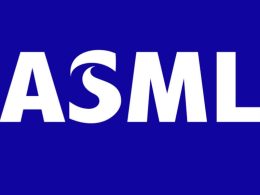U.S. Equity Market Diary (July 12, 2010)
The figure below shows the performance of each sector in the S&P 500 index for the week. All ten sectors increased. The best-performing sector was materials, up 8 percent. Other better-performing sectors included financials and energy. The three worst-performing sectors were telecom services, health care, and consumer staples.
Within the materials staples sector the best-performing stock was AK Steel Holding Corp., up 14 percent. Other top-five performers in the sector were Titanium Metals Corp., US Steel Corp., Dow Chemical Co., and Freeport-McMoran Copper & Gold Inc.

Strengths
- Five of the top ten performing groups were in the materials sector (diversified metals & mining, fertilizer & agricultural chemicals, diversified chemicals, aluminum, and steel) with the prices of these groups all increasing. It appeared that some investors’ concerns about a weakening economy may have eased up this week, at least temporarily.
- The regional bank group outperformed, rising 12 percent. Decreasing investor anxiety about the economy, however temporary, likely played a role in this group’s rise also.
- The industrial power producer & energy trader group increased 9 percent. The gain in this group appeared to be related to investor anticipation of increased energy usage expected to result from the warm weather in the Northeast.
Weaknesses
- The specialty consumer services group was the worst performer, led down 4 percent by its single member, H&R Block Inc. The firm’s CEO resigned unexpectedly after two disappointing tax seasons.
- The retail auto group underperformed, losing 1 percent, led by O’Reilly Automotive Inc. The firm announced that the exchangeable senior notes due in 2025 are now exchangeable at the option of the holders.
- The general merchandise stores group underperformed, down less than 1 percent, led by Family Dollar Stores. Inc. The company’s fourth quarter earnings forecast was below the consensus estimate.
Opportunities
- There may be an opportunity for gain in M&A (merger & acquisition) transactions in 2010. Corporate liquidity is high, thereby providing the means to pursue acquisitions.
Threats
- Should investors’ expectations for an improving economy not come to fruition on a reasonable time frame, it could be a threat to stock prices.
- As governments around the world begin to wind-down the monetary and fiscal stimulus programs put in place during the economic crisis, it will likely present a headwind for stocks.









